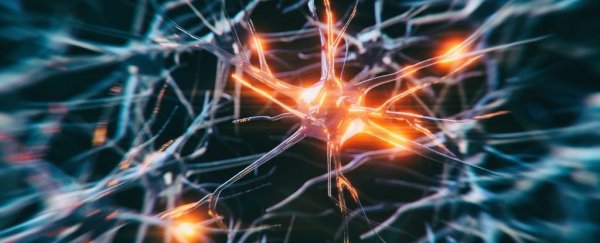Scientists in Sweden have developed a simple and reliable tool for diagnosing Alzheimer's disease in its earliest stages. The prototype analyzes the results of a single blood test and three cognitive exams, which take only ten minutes to complete.
With just that information, the new algorithm was able to predict with 90 percent certainty which patients with mild cognitive impairment would go on to develop Alzheimer's within four years.
Compared to current diagnostic methods, that's a big improvement. In early tests of the prototype, dementia experts - who use a person's medical history and brain scans to make their diagnosis - performed significantly worse than this new tool.
When examining 340 patients in Sweden and 543 patients in North America with mild memory issues, experts were right about who would develop the disease 72 percent of the time.
On the other hand, the new algorithm was 83 percent accurate at predicting Alzheimer's onset using only the blood test results.
These blood plasma samples were used to look for a known Alzheimer's risk gene as well as evidence of tau protein tangles in those already suffering from mild memory problems.
Recent studies suggest tau proteins are present in the brain from the earliest stages of Alzheimer's, and last year, scientists found plasma P-tau217 - a product of tau proteins in the blood - was a good predictor of cognitive decline in people with mild cognitive impairment.
In the past, P-tau217 in the cerebrospinal fluid has been found to predict cognitive decline specific to Alzheimer's, but spinal fluid tests are much more invasive and expensive than a simple blood test.
Previous prototype blood tests have also been developed, but none have yet made it into the clinic. These blood tests were based on another hallmark of the disease similar to tau proteins, called amyloid-beta plaques.
This type of brain plaque, however, doesn't seem to be quite as ubiquitous among Alzheimer's patients as tau proteins are. In fact, up to a third of patients with clinical diagnoses of Alzheimer's are missing these plaques postmortem, while some people without any memory issues show the biomarkers after death.
This had led researchers to suggest amyloid-beta plaques are latecomers of the disease; in turn, this indicates that tau-related biomarkers could catch the disease sooner.
"The algorithm will enable us to recruit people with Alzheimer's at an early stage, which is when new drugs have a better chance of slowing the course of the disease," says neuroscientist Oskar Hansson from Lund University in Sweden.
The researchers hope that their test - after additional improvements and tweaking - will one day make a major difference in the diagnosis of Alzheimer's, especially in places that can't afford expensive brain imaging technology or cerebrospinal fluid tests.
"The algorithm has currently only been tested on patients who have been examined in memory clinics. Our hope is that it will also be validated for use in primary healthcare as well as in developing countries with limited resources," says lead author of the study Sebastian Palmqvist, also from Lund University.
The study was published in Nature Medicine.
